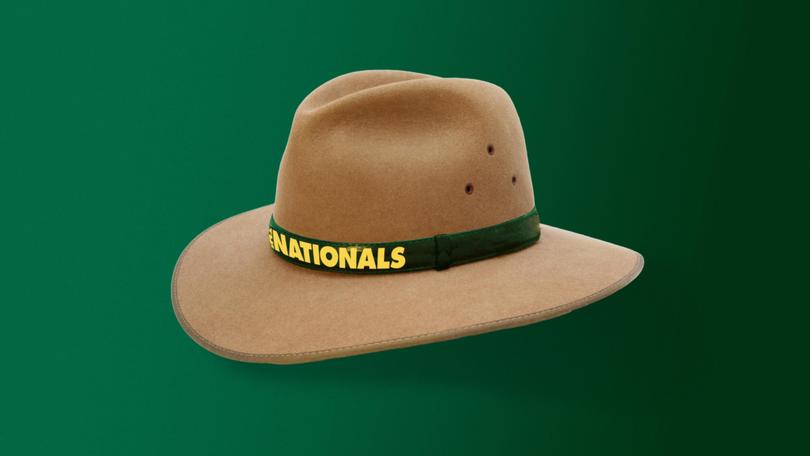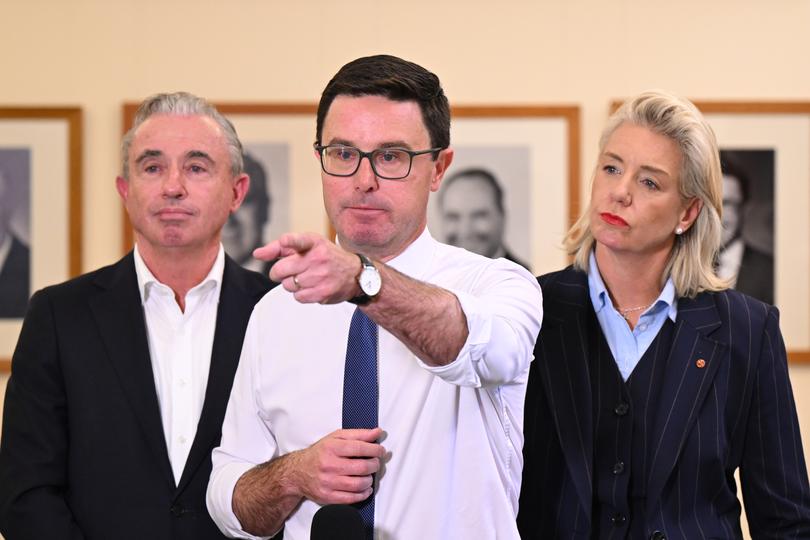AARON PATRICK: Liberals wonder how long leader Sussan Ley can survive a broken Coalition
AARON PATRICK: Conservatives within the Liberals Party are aghast at the break-up with the Nationals.

Sussan Ley’s promise to take the Liberal Party to what she calls the “sensible centre” has just received a response from the Coalition’s Right wing: no thanks baby.
For the first time at a Federal level since 1987, the greatest election-winning combination in Australian history has split. As one journalist quipped during Nationals leader David Littleproud’s separation press conference on Tuesday, the two parties are now “friends without benefits”.
The Liberal Left is delighted. Freed from what they regard as a bunch of blackmailing climate sceptics, they believe they can now storm back into the inner-city seats that were their political power base. “They’re a disgrace,” was how one of those Liberals described the Nationals on Tuesday.
Sign up to The Nightly's newsletters.
Get the first look at the digital newspaper, curated daily stories and breaking headlines delivered to your inbox.
By continuing you agree to our Terms and Privacy Policy.The party’s Right faction is aghast. In six days Ms Lee has lost an alliance that survived wars, recessions and Barnaby Joyce’s love life. An electoral compromise for economic purists to share power with agrarian socialists, they know the coalition’s termination compounds the humiliation of May 3’s election defeat.
Jobs for everyone
In the short term, though, the split makes one part of Ms Ley’s job easier. Perhaps too easy. If she matches the 42 ministerial positions, less than a dozen Liberals will be on the backbench. There are three Opposition whips in each house too, which means almost every Liberal MP can expect some kind of extra responsibility, and pay(whips organise parliament).
Keeping her MPs less unhappy will presumably be Ms Ley’s top priority, and she can now operate a no-MP-will-be-left-behind opposition. But the split, and the torrent of pain it will spread across the party, exacerbates the structural weakness of her position.

Defeated senators are replaced on July 1, likely taking with them her small internal majority. Senators Linda Reynolds and Hollie Hughes, who voted for Ms Ley, will leave. Senator Jess Collins from NSW will arrive. She is from the Right faction, which supported Angus Taylor. Giselle Kapterian, who was allowed to vote for Ms Ley last week, may never take up the Sydney seat of Bradfield, where she lost a preliminary count by 38 votes.
Based on last week’s leadership vote, the changes would put Mr Taylor ahead 27 to 26. From the Cooma region of NSW, the ex-business consultant is so country when first elected he was considered a future leader - of the National Party.
Now the Liberal party’s leading coalitionist, Tuesday’s events may convince Mr Taylor to put aside thoughts of resigning, to farm his property near Goulburn and ski Kosciuszko National Park’s trails. The leadership awaits.
‘Structural collapse’
Mr Taylor’s conservative supporters have written off seats won by independents such as Sydney’s Wentworth, Melbourne’s Kooyong and Perth’s Curtin. The party’s urban problem extends further than the teal seats, though.
Outside of Queensland, it holds only five capital city seats. “The Liberal’s urban crisis is no longer a trend, it actually looks like a structural collapse,” Labor-aligned pollster Kos Samaras wrote this week.
Might winning them back be easier outside a coalition? On Monday, a former president of the NSW Liberal Party, Jason Falinski, said aloud what some Liberals have wished for years.
“I think the Liberal Party should just say, look, it’s not working for us anymore,” he told Sky, comments that were ignored until Tuesday’s announcement. “Perhaps we should all take a break from each other and reconsider our positions.”
Mr Falinski’s argument is that an opposition freed of its most conservative advocates - Queensland senator Matt Canavan, for one, wants to drop he 2050 net-zero carbon emissions policy - will be more attractive to socially liberal city residents.
Given the Nationals initiated the split, it would seem that on the matter of mutual incompatibility they and Liberal Party elements agree.
No one really expects a permanent split, though. Electoral reality dictates the Coalition will reform, which would allow them to go back to disliking each other while being friendly in public.

